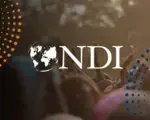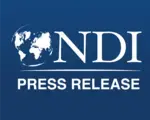Public Opinion Research
Displaying search results 131 - 140 of 5109


Public Opinion Research
NDI Poll: Maliki Makes Gains, but Divisions Grow, February 2013

Public Opinion Research
NDI Poll: Pessimism Brings Shift in Political Dynamics in Iraq, August-September 2013

Public Opinion Research
Public Discontent and Divisions Intensifying Results from the July 2011 Iraq National Survey

Page





